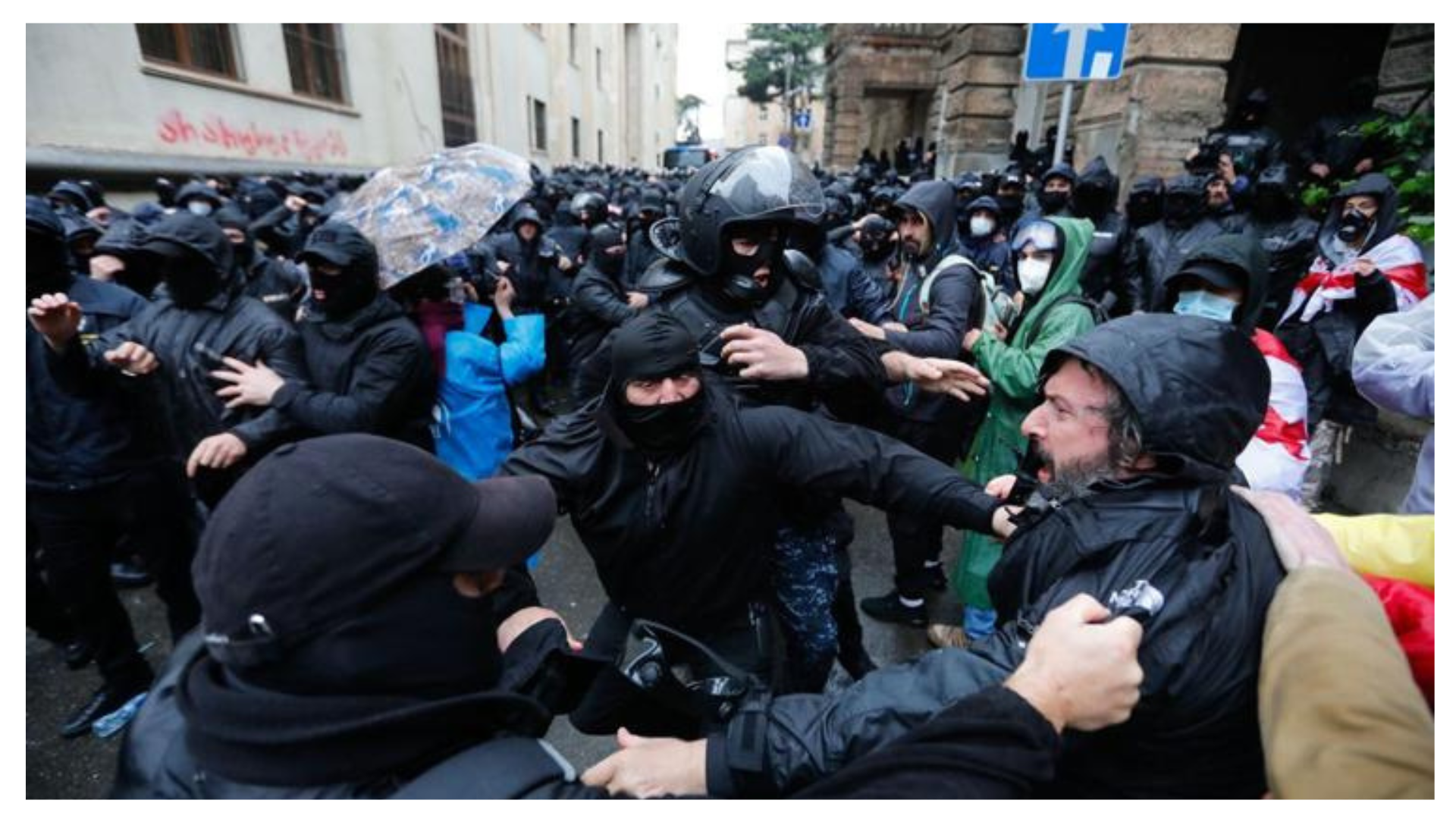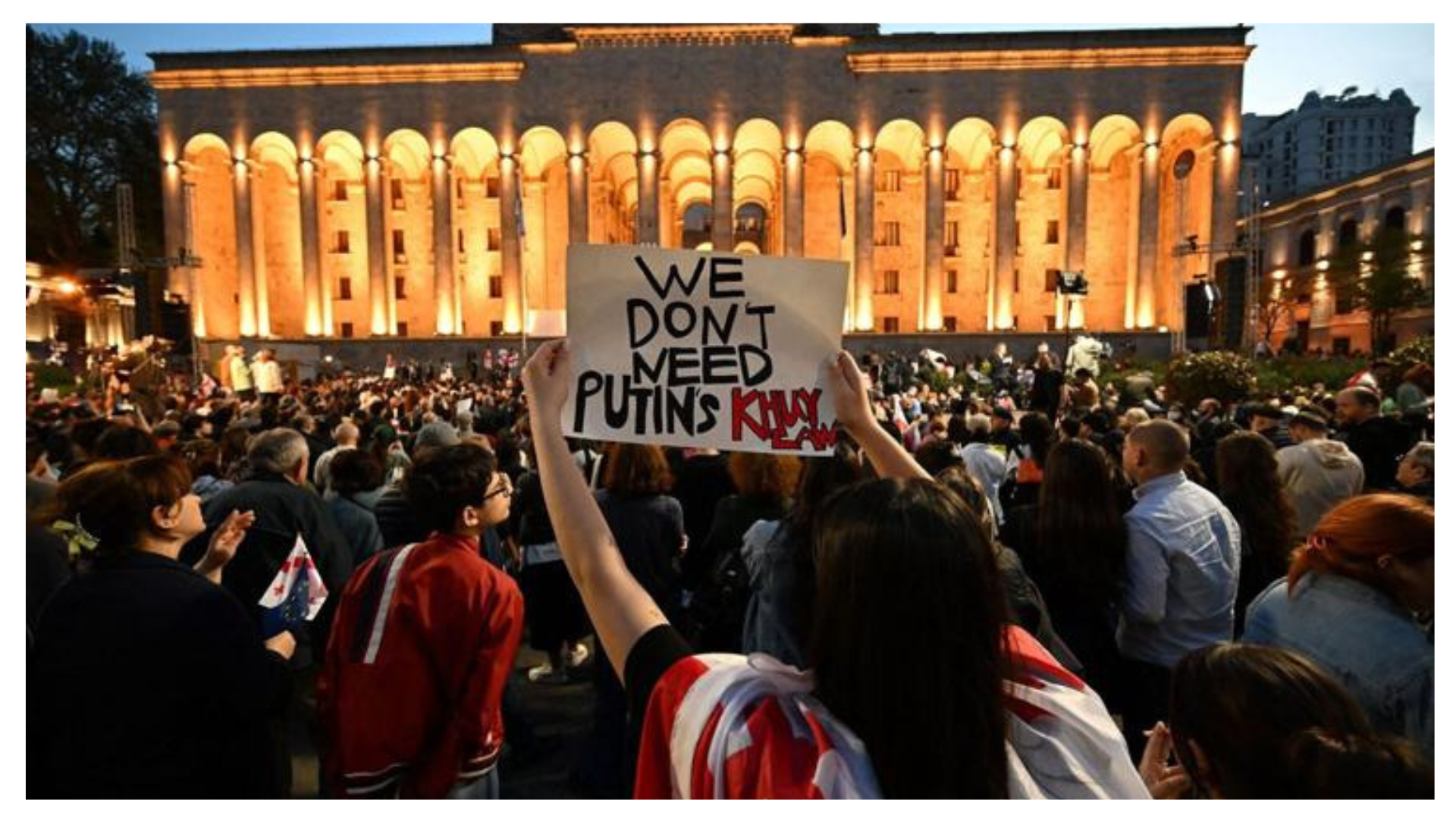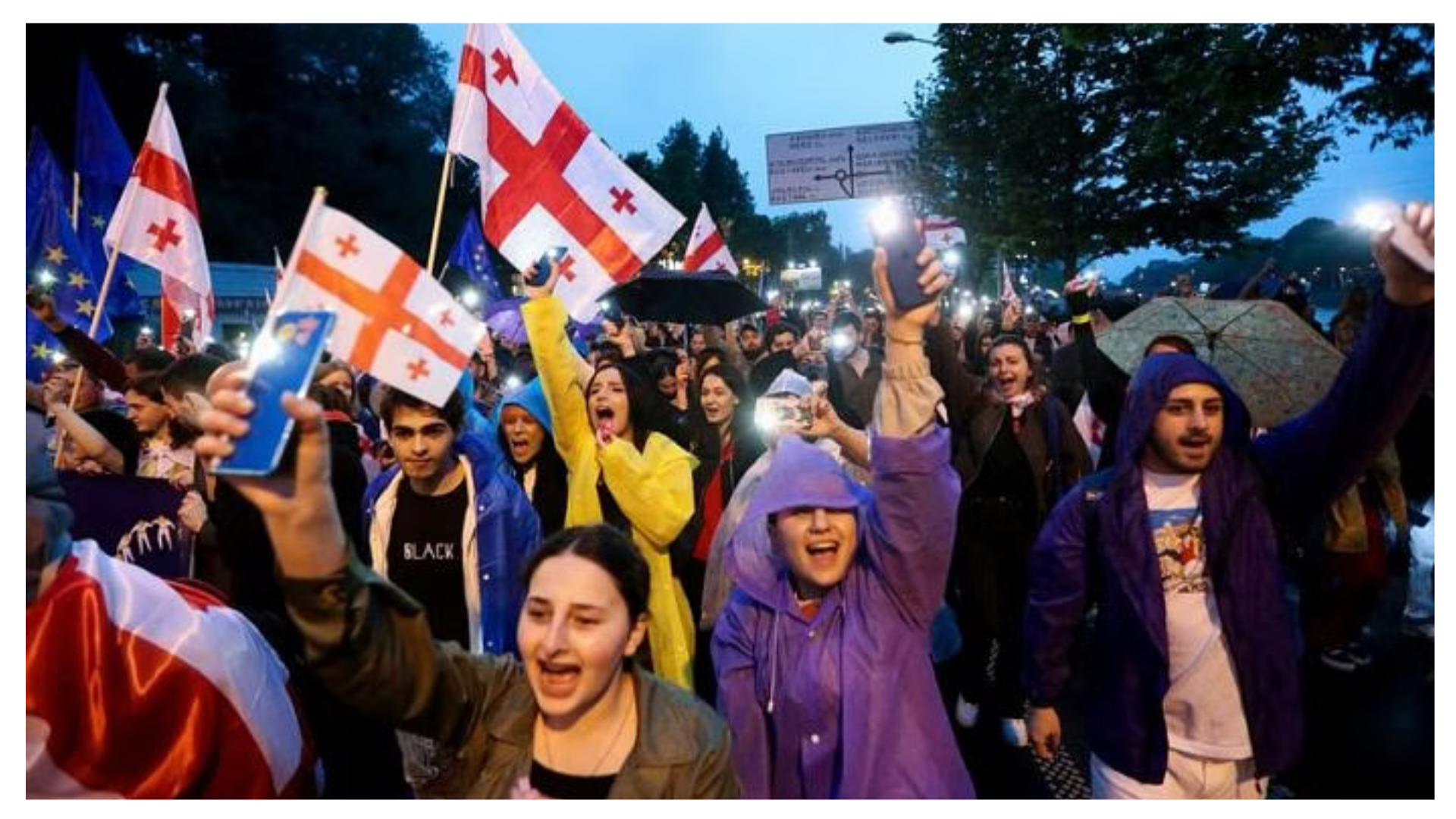A contentious “foreign agents” measure that has sparked massive protests around the former Soviet nation tucked away in the Caucasus Mountains is about to be passed by Georgia’s parliament.
Tens of thousands of people demonstrated against the law in Tbilisi, the country’s capital, before the vote.
What you need to know about the proposed law and the controversy surrounding it is provided here.
Table of Contents
ToggleWhat does the law say?
The law would impose severe fines on groups that receive more than 20 percent of their financing from outside the country unless they registered as “agents of foreign influence.”
The Georgian Dream Party, which controls parliament together with its partners, wrote the law. On Tuesday, the plan will be put to a vote, and it is anticipated to pass.
In an interview with CNN, Georgia President Salome Zourabichvili referred to the measure as “an exact duplicate” of its Russian equivalent.

Though that won’t matter much, she has threatened to veto the law. Since Georgia has a parliamentary form of government, Zourabichvili essentially serves as a symbolic head of state. Prime Minister Irakli Kobakhidze has the real power. Former prime minister Bidzina Ivanishvili, the rich founder of Georgian Dream, is also a powerful political figure.
Why is it the subject of so much controversy?
For a few reasons.
The Russian government has been using a similar measure, which is the model for the proposed legislation, to stifle opposition and civil society.
Many Georgians worry that their foreign agent bill will be used in the same way as in its northern neighbor: targeting nonprofit organizations with foreign funding links in an attempt to stifle free speech and protest.
Georgian Dream has retaliated against Western criticism of the initiative, arguing that it will advance openness and national sovereignty.
However, the potential passing of the bill has raised a more fundamental query: would Georgia’s future lie in Russia or Europe?

Since gaining independence from the Soviet Union in 1991, Georgia, like Ukraine, has found itself sandwiched between the two geopolitical powers.
Since the Kremlin invaded Georgia in 2008 and now controls around 20% of its internationally recognized territory—almost the same amount that Russia currently has in Ukraine—many Georgians harbor intense animosity toward it.
Many have long accused Georgian Dream of having pro-Russian inclinations, particularly considering that Ivanishvili gained his wealth in the Soviet Union.
What are the opinions of most Georgians on it?
With fervor. So much so that the bill once brought legislators to blows.
According to polls, 80% of Georgians would prefer to join the EU than entwine themselves more tightly with the Kremlin, and many of those who are in favor of strengthening connections with the West have taken to the streets.
In Tbilisi, large-scale protests against the law have been happening every night for the past month. In the capital, which is home to over a million people, approximately 50,000 people turned out on Sunday night to voice their opposition to what they have termed “the Russian law.”
Additionally, there have been counter-protests. In one, a group of supporters who had been bussed into Tbilisi from Georgia’s rural areas—where the Georgian Dream is more popular—saw the reclusive Ivanishvili give a rare address.

The speech revealed a strong authoritarian tendency and profound paranoia. Ivanishvili promised to pursue his political rivals following the elections in October, claiming that “a pseudo-elite nurtured by a foreign country” was in charge of Georgia.
Georgia, didn’t you previously go through this?
Yes, that was just a year ago.
Georgia’s government attempted to enact the same rule but was forced to back down embarrassingly following a week of fierce protests in which demonstrators brandished water cannons in the faces of residents carrying EU flags.
In March, almost one month after Kobakhidze was appointed prime minister, the measure was reintroduced. Authorities appear committed to passing the measure this time around.
What have other nations said?
Washington is “deeply alarmed about democratic backsliding in Georgia,” according to a post by White House national security advisor Jake Sullivan on X.

He stated, “Georgian parliamentarians face a critical choice: whether to support the Euro-Atlantic aspirations of the Georgian people or pass a foreign agents’ law that is in line with democratic values and is reminiscent of the Kremlin.” “We support the people of Georgia.”
The bill is being used to “provoke anti-Russian sentiments,” according to the Kremlin, which also asserts that “outside” powers are igniting rallies against it.
“Many governments are now using this as their standard procedure in an attempt to shield themselves from foreign influence on internal politics and other external influences. Dmitry Peskov, a spokesperson for the Kremlin, stated in April that “all these bills have the same goal, but all countries are taking action in one way or another.”
“Once more, there is no way to connect this bill—which is untrue—with the goal of securing Georgia’s internal politics through Russian influence.”
In a statement earlier this month, President Ursula von der Leyen of the European Commission expressed Brussels’ continued unhappiness with the bill and said she was “greatly concerned” about the events in George.
Georgia is facing a decision. It ought to continue as planned on the path to Europe,” she remarked.
Is there a chance that the bill would affect Georgia’s EU candidacy?
Without a doubt,.

Georgia submitted its initial application for EU membership in 2022, and in December of that year, it was given candidate status—a significant but preliminary step toward joining the EU. But last month, Brussels declared that passing the bill would “negatively impact” Georgia’s chances of joining the EU.
“The thriving civil society in Georgia plays a significant role in the nation’s successful advancement towards EU membership. According to EU authorities, the new law will unfairly stigmatize groups that benefit Georgian residents and restrict the freedom of speech, civil society, and media organizations.
“The European Union exhorts Georgia to desist from enacting laws that could jeopardize Georgia’s EU path, which is backed by the vast majority of Georgian citizens.”



